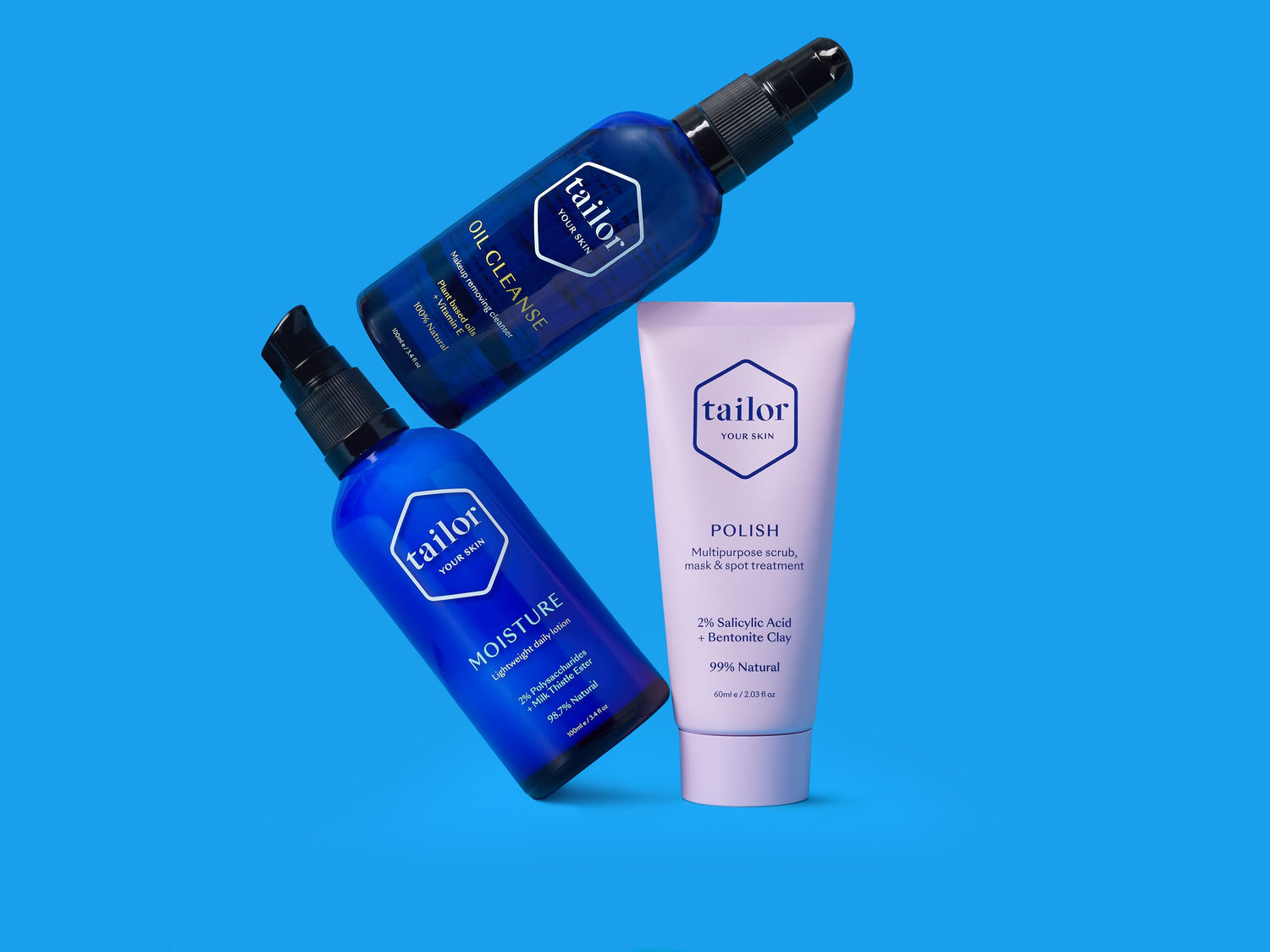In today’s modern fast-paced society we’re often struggling to get the amount of sleep our body needs (not wants, needs). We’re skipping sleep in favour of longer work hours, bright screens, technological devices in bed, and a growing inability to switch off. Sleep deprivation has a number of negative consequences for our body, including our skin – but why is sleep so important for our largest organ?
Although we may joke about needing our eight hours of “beauty sleep”, the fairytale does hold great truth – sleep truly is one of nature’s most powerful beauty treatments. Chances are we’ve all experienced that dreadful moment upon awakening after a late night out, only to look in the mirror with much dismay at the dry, dull-skinned and puffy-eyed version of ourselves – and while recovering from the occasional late night out is simple enough, on-going sleep deprivation can be detrimental to the health of our skin.

Lack of sleep ages your skin
Studies have shown that sacrificing slumber can greatly accelerate the ageing process. Stress is almost inherent in a lack of sleep – and not getting enough shut-eye can cause our body to release more of cortisol, the stress hormone. In excess, this hormone is linked to an increased breakdown of collagen, a structural protein that helps keep our skin supple and smooth and prevent UV damage. Skin aside, on-going increased cortisol levels may also contribute to a vicious cycle of sleeplessness, making it harder to fall and stay asleep throughout the night – so if you think stress could be a contributing factor to your night owl behaviour, definitely consider exploring stress management techniques.
Lack of sleep causes skin dehydration
Skimping on sleep has also been linked to a decrease in the skin's barrier function. This is problematic for a few reasons – firstly, the outer-most layer of the skin plays an important role in locking in moisture, and when this is disturbed by a lack of sleep this may lead to dehydration, causing fine lines to become more noticeable. Impairment in the skins barrier function has also been linked to several chronic skin disorders, including atopic dermatitis and psoriasis, as well as an over-all increase in the skin's surface sensitivity, making it more susceptible to irritation, redness, and inflammation.
Beauty sleep for healthy looking skin
While being told you look tired is never fun, according to a 2010 study published in the British Medical Journal, regular sleep does actually make us appear healthier and attractive to others. In the study, twenty-three participants were photographed after a normal night’s sleep of eight hours, and then after a period of sleep deprivation, with both sets of photos shown to untrained observances who were to rate each photo on health, tiredness, and attractiveness. When individuals were sleep deprived they were rated as less healthy, more tired, and less attractive – compared to those who had a normal night’s sleep.

Top tips for a good night's sleep
If you’re not getting enough sleep, look at making it a priority - not just for better skin, but also for better health. After all, with restorative sleep comes improved mood and cognitive function, enhanced immunity, better emotional and physical resilience, a higher pain threshold, and better hormonal function...to name a few. Here are some top tips for a beautiful night's rest:
- Get a dose of sunshine upon waking. Ensuring a great night’s sleep can begin the moment you wake up. Get at least 10 minutes of sunshine before 10 am to help reset your body’s internal clock and let it know its daytime.
- Have a positive bedtime ritual. Take time out for selfcare, especially with your skincare. Try pairing Tailor Illume with a Gua Sha massage to relieve tension and stress.
- Try turning off all electronic devices within two hours of bed. Exposing your eyes to bright light too late at night, whether that be through a mobile, computer screen, or television can interfere with the production of melatonin, an all-important hormone necessary to help us fall and stay asleep. Try reading a book instead.
- Get worry and stress in check. Stress, worry, and anxiety can make it extremely difficult to sleep well. Relaxation techniques can be particularly helpful to quiet and the calm the mind, and in wind downing and preparing for sleep. Try deep breathing, progressive muscle relaxation, or meditation.
- Avoid coffee and stimulants after 3 pm. The caffeine in stimulants does a good job at keeping us alert and awake, which is beneficial if needed - but terrible when it’s bed time. Be cautious of when you ingest stimulants or look at removing them from your diet altogether.

Sweet Dreams.
References
- Altemus, M., Rao, B., Dhabhar, F. S., Ding, W., & Granstein, R. D. (2001).
- Stress-Induced Changes in Skin Barrier Function in Healthy Women. Journal of Investigative Dermatology , 309-317. Axelsson, J., Sundelin, T., Ingre, M., Van Someren, E. J., Olsson, A., & Lekander, M. (2010).
- Beauty sleep: experimental study on the perceived health and attractiveness of sleep deprived people. BMJ , 341. Kahan, V., Andersen, M. L., Tomimori, J., & Tufik, S. (2010).
- Can poor sleep affect skin integrity? Med Hypotheses , 535-537. Weaver, Dr Libby;. (2013).
- Beauty from the inside out. Little Green Frog Publishing Ltd.

